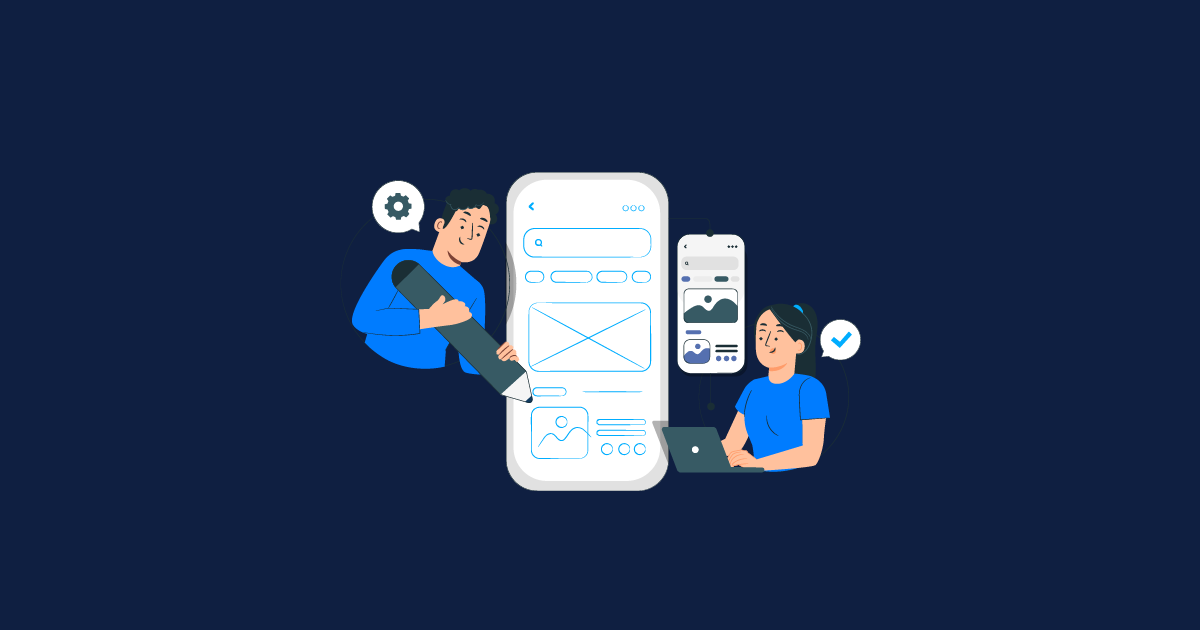Explore innovative methodologies and best practices for seamless software quality assurance. Let's transform your testing approach together.
As technology advances and user expectations soar, the need for robust, reliable, and secure software has never been more pronounced. Modern software testing methodologies and practices have adapted to meet these demands and we at QAonCloud embrace new technologies, methodologies, and practices to ensure the delivery of high-quality software products.
Evolution of Software Testing
Software testing has traversed a remarkable journey since its inception. Initially viewed as a post-development activity, testing has transitioned into an integral part of the software development lifecycle (SDLC). We at QAonCloud have given way to agile methodologies, where testing became an iterative process intertwined with development.
Methodologies and Approaches We Follow at QAonCloud for Software Excellence
Software testing methodologies encompass a range of strategies and approaches employed to verify that an application behaves and appears as intended. These methodologies cover testing across all aspects, from front-end to back-end, which includes both unit and system testing.
Functional Vs Non-Functional Testing
Incorporating various testing methodologies in your development process aims to ensure your software functions effectively across diverse environments and platforms. These methodologies are commonly categorized into functional and non-functional testing. Functional testing assesses the application's adherence to business requirements, utilizing test cases provided by the design team or business analyst. Typically conducted sequentially, these testing methods include:
Unit Testing
Integration Testing
System Testing
Acceptance Testing
Non-functional testing methodologies encompass all test types that emphasize the operational aspects of software. These include:
Performance testing
Security testing
Usability testing
Compatibility testing
To ensure the release of high-quality software products easily adopted by end users, it's crucial to establish a robust testing framework that integrates both functional and non-functional testing methodologies.
Modern Software Testing Practices We Follow at QAonCloud
Modern software testing practices have evolved significantly in recent years due to the adoption of Agile and DevOps methodologies, as well as advancements in technology. Here are some key aspects of modern software testing practices that we follow at QAonCloud:
We at QAonCloud emphasize testing early in the software development lifecycle (SDLC). This means involving our QA teams right from the requirements and design phase to catch defects earlier and reduce the cost of fixing them later in the development process. Automation Testing plays a crucial role in modern software testing practices. Test automation frameworks and tools help our QA teams automate repetitive test cases, regression testing, and other routine tasks. Automation increases test coverage, reduces manual effort, and accelerates the testing process. Integrating testing into the CI/CD pipeline, enabling continuous testing and feedback throughout the development process. Automated tests are triggered automatically with each code commit, ensuring that new changes do not introduce regressions and that the software remains in a deployable state at all times. With the rise of containerization technologies like Docker and orchestration tools like Kubernetes, Our QA professionals adapt their practices to test applications deployed in containerized environments and microservices architectures. This involves testing individual microservices, as well as end-to-end integration testing across the entire application ecosystem. In addition to testing early in the SDLC, we at QAonCloud focus on testing in production (shift right). Techniques like monitoring, A/B testing, canary releases, and feature toggles enable our team to gather real-time feedback from users and ensure the stability, performance, and usability of the software in production environments. AI and machine learning technologies are increasingly being applied in our QA processes. This includes test data generation, predictive analytics for identifying high-risk areas, intelligent test case prioritization, and even automated defect detection and root cause analysis. We at QAonCloud emphasize collaboration and communication between QA engineers, developers, product owners and other stakeholders. Cross-functional teams work together closely to ensure that quality is built into the software from the outset, rather than treated as an afterthought. We understand the importance of QA automation and recognize the value of exploratory testing where our testers explore the software/app dynamically to uncover defects, usability issues, and edge cases that may not be covered by scripted tests. With the growing importance of cybersecurity, we integrate security testing earlier in the SDLC. This involves identifying security vulnerabilities, conducting penetration testing, and ensuring compliance with security standards and regulations. Thus, our modern software testing practices are characterized by agility, automation, collaboration, and a focus on delivering high-quality software that meets the needs of end-users while aligning with business objectives. The dynamics of modern software testing are characterized by innovation, collaboration, and adaptability. As software systems become increasingly complex and interconnected, the importance of effective modern software testing practices cannot be overstated. By embracing agile methodologies, automation, and emerging technologies, organizations can elevate the quality of their software products, enhance customer satisfaction, and gain a competitive edge in today's fast-paced digital landscape. To successfully implement modern testing practices you need QA experts that assist you manage both digital and legacy systems to achieve unparalleled performance. As we at QAonCloud continue to explore new possibilities in software testing services, the journey towards perfection is boundless, fueled by an unwavering dedication to excellence and a commitment to continuous improvement! 1. Shift-Left Testing:
Test Automation:
Continuous Integration/Continuous Deployment (CI/CD):
Containerization and Microservices:
Shift-Right Testing:
AI and Machine Learning:
Collaboration and Communication:
Exploratory Testing:
Shift-left Security Testing:
Wrapping Up!



